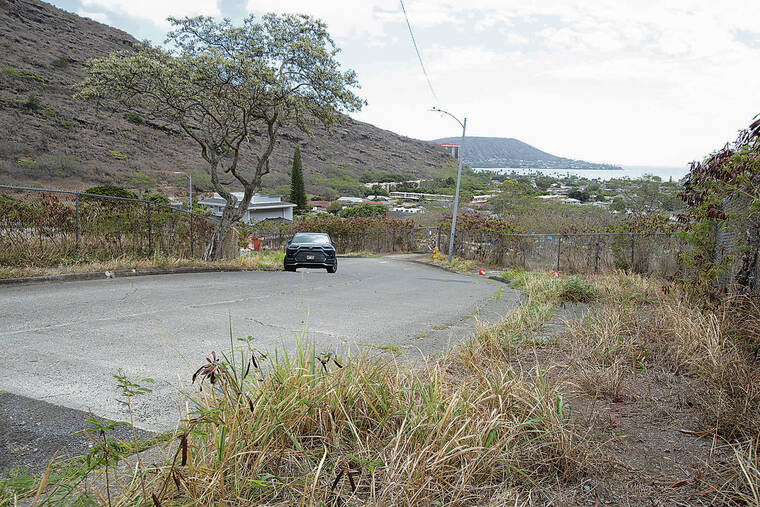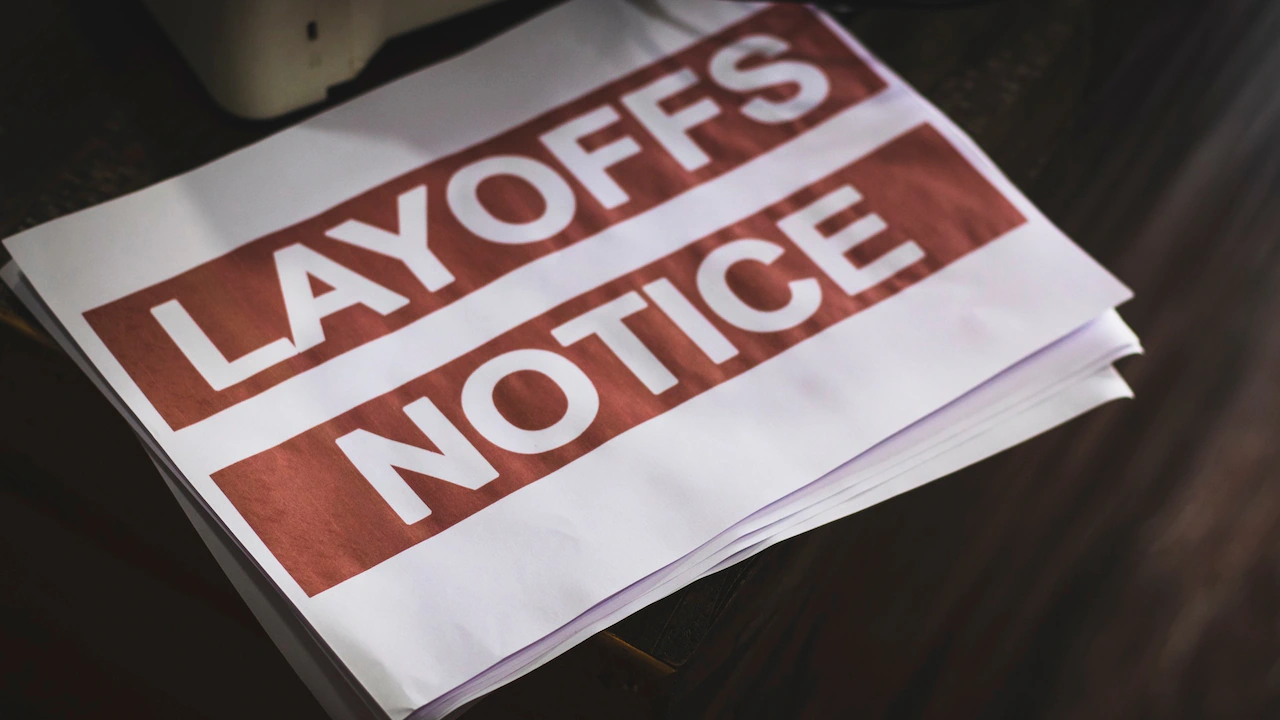Copyright staradvertiser

A “rare vacant lot” on a residential Honolulu hillside was listed for sale at $599,000 earlier this year with advertised potential for a rise in value. Four decades ago, the state paid the original owner of the same lot — along with more than a dozen other owners who had fairly new houses at the time — for the properties because they were on an unstable part of a state affordable--housing subdivision in Kuliouou Valley. However, long after the homes pulled apart by shifting earth were demolished, the lots made their way back onto the market and could benefit from a state road repair project and future infrastructure improvement obligations. The board of the state’s Hawaii Housing Finance and Development Corp. in July approved spending $500,000 appropriated by the Legislature in 2024 on “Band-Aid” repaving of a dilapidated road fronting 17 vacant lots where the state previously purchased and demolished damaged homes built by a private developer for a predecessor agency as part of a larger subdivision. The road, Papahehi Place, also still serves about 20 homeowners whose properties weren’t ruined by ground movement that displaced previous neighbors. Some homeowners on the street appreciate the planned road repair but are also concerned about still-deferred improvements to damaged sewer- and waterlines under the street that remain the responsibility of HHFDC. There also is some perplexity over how the once--condemned house lots, offering views of the ocean and the Portlock area, were later auctioned off by the state and have been resold for profit and construction of two new homes to date after litigation with the city over building permits. Angela Correa-Pei, who lives in a Papahehi Place house that her parents bought new in 1981, said it’s been frustrating to have little to no maintenance of the road or to many of the empty lots since the state resold them in 2005 for $285,000 roughly 15 years after spending $5.7 million to condemn and demolish 17 original houses and to pay for emergency repairs, consultant fees, legal costs, grading and drainage improvements as well as temporary rent and relocation expenses for displaced residents. “We’ve had to live with temporary sewage (pipes), temporary waterpipes, temporary stormdrains for going on almost 40 years,” she said. “We’ve dealt with it because it’s peace of community, but my concern is that the city and the state are going to cave in to these other investors who have invested in the property and allow them to build at what cost.” Subdivision slip-up Homes along Papahehi Place were part of the state-sponsored KauHale Aupuni O‘Kuliouou subdivision with 197 single-family houses that broke ground in 1980 and was completed in 1982. Kuliouou Valley Associates, a joint venture between real estate broker Kikuo Yanagi and Hawaiian Dredging & Construction Co., developed the subdivision on state land in the back of the valley for the Hawaii Housing Authority, an HHFDC predecessor. Following two heavy rainstorms in December 1987, foundations cracked and walls separated in some Papahehi Place houses. At least two homes split in half. Part of the road itself became contorted above ruptured water- and sewerlines. In 1989, a Hawaii Housing Authority successor agreed to cover damages and other expenses for $5.7 million. The state in 2000 sued the developer and about 10 other firms involved in the project. After Hawaiian Dredging declared bankruptcy in 2003, a settlement was reached in 2006 that resulted in receipt of $75,000 from insurers and project consultants, according to HHFDC. Yet the state also agreed to rebuild the road and underlying infrastructure, all of which became city property when KauHale Aupuni was completed, once ground movement ceased. According to Dean Mina-kami, HHFDC’s executive director, sensors in the roadway show this has not yet occurred. “Ground movement hasn’t stopped,” he said at the agency’s July meeting. “It continuously moves.” Some investors who bought previously condemned lots from the state disagree and have been profiting off multiple resales. Lot flipping According to property records, Honolulu-based Metropolitan Maintenance Inc., led by Donald Tagawa, paid $235,000 for 16 lots, equating to a little under $15,000 per lot, and the Correa family bought a lot next to their house for $50,000. Since then, most of these lots have been resold, sometimes more than once. Metropolitan sold its 16 lots for about $1 million mostly in 2013 to six investors. Xiaoli Jing, who acquired four lots from Metropolitan for $301,800, resold one for $200,000 in 2016 to 808 Farms LLC led by Michael Sakatani, who a few years later fought the city in court with one other lot buyer to obtain permits to build new homes. Sakatani, who in 2016 also bought six other Papahehi Place lots for $130,000 to $300,000 each from earlier investors, filed his lawsuit in 2019 with Kurtis Derell and Carol Jung, who paid $450,000 for their lot in 2016 from another company that bought it from Metropolitan. The complaint alleged that the city was withholding approval of nondiscretionary home development permits over the commitment by the state to rebuild Papahehi Place, including underground utility pipes, when the state determines that ground movement has ceased. The plaintiffs contended that not approving their applications to build would constitute condemnation of their land and the right to compensation. Furthermore, the lot owners argued that their own licensed geotechnical engineer determined that any ground movement was less than measuring devices can detect, and that both lots could access a functioning sewerline outside the area damaged previously. An engineering firm retained by the city detected earth movement over multiple years, according to documents filed in the case. The lawsuit was settled in late 2020 with each party responsible for their own legal costs, and building permits were issued. Derell and Jung built a home valued at $900,000 in 2022, and the city now values the land and home for property tax purposes at about $2.1 million. Sakatani’s company resold its lot at 597 Papahehi Place in 2021 for $640,000. The buyers, Xu Yuan He and Marina Yuqing Wang, built a home valued at $665,100 and have a pending permit to add an accessory dwelling. The city for property tax purposes values their property at about $1.6 million. The most recent resale of a Papahehi Place lot was made to the Vietnam Reform Foundation, a California--based organization, in December for $531,000. The seller, Yun Hee Im, had bought it for $350,000 in 2016 and listed the 10,087-square-foot property with ocean views for sale “as is” with due diligence up to a buyer. “Ocean views lot for 529,000!!,” the listing stated. “Don’t miss this one. Bring your architect and plan your dream house.” Prior listings for the same lot at 644 Papahehi Place after Im bought it in 2016 included asking prices of $1 million in 2022 and $795,000 in 2023. An adjacent lot at 638 Papahehi Place bought by Soon Nyo Park in 2016 for $350,000 was listed earlier this year for $599,000. “Don’t Miss out!” the listing said. “Rare vacant lot (9,191 Sf) in highly desired Kuliouou Valley. Build your dream home. To be sold ‘AS IS’. Ocean view house has a tranquil atmosphere, improved mental and physical well-being, and potential for higher property values.” The listing in March was later canceled, relisted and then canceled again in August. ‘A unique situation’ Correa-Pei said she wishes the state would have retained the lots and converted them to conservation land filled with native plants. “Right now, (much of) our neighborhood is overgrown haole koa that nobody takes care of,” she said. In addition to dry brush, two fire hydrants on the street are out of service and one lot is strewn with construction debris. State Rep. Mark Hashem (D, Waialae-Aina Haina--Hawaii Kai) said at HHFDC’s July meeting that it might be better for the state to buy out all Papahehi Place property owners given the expected cost for a permanent road and infrastructure fix that he described as involving a retaining wall and costing more than $30 million. “This is only a Band-Aid fix,” he told the agency’s board, referring to the repaving, which the state Department of Transportation agreed to do using the $500,000 appropriation because the city refused to do the work with the same funding. “It’s cheaper to just condemn the houses and buy the houses as they come up for sale rather than go through the whole fix,” said Hashem, who arranged the appropriation for repaving. James Tokioka, an HHFDC board member and director of the state Department of Business, Economic Development and Tourism, said it doesn’t seem fair for the city to have been collecting property taxes from improved lots along Papahehi Place for over three decades without chipping in to fix the road and underlying infrastructure. “The city should be participating in cost sharing too,” he said at the meeting. “Not just us.” Another board member at the meeting, Luis Salaveria, then-director of the state Department of Budget and Finance, also questioned whether the city should be responsible for the road. Randy Chu, HHFDC development branch chief, said in response that it’s a unique situation. “We definitely would want to live up to our obligations,” he said, “but the city is taking a position such that even though it’s their road right now they don’t want to fix it.”



